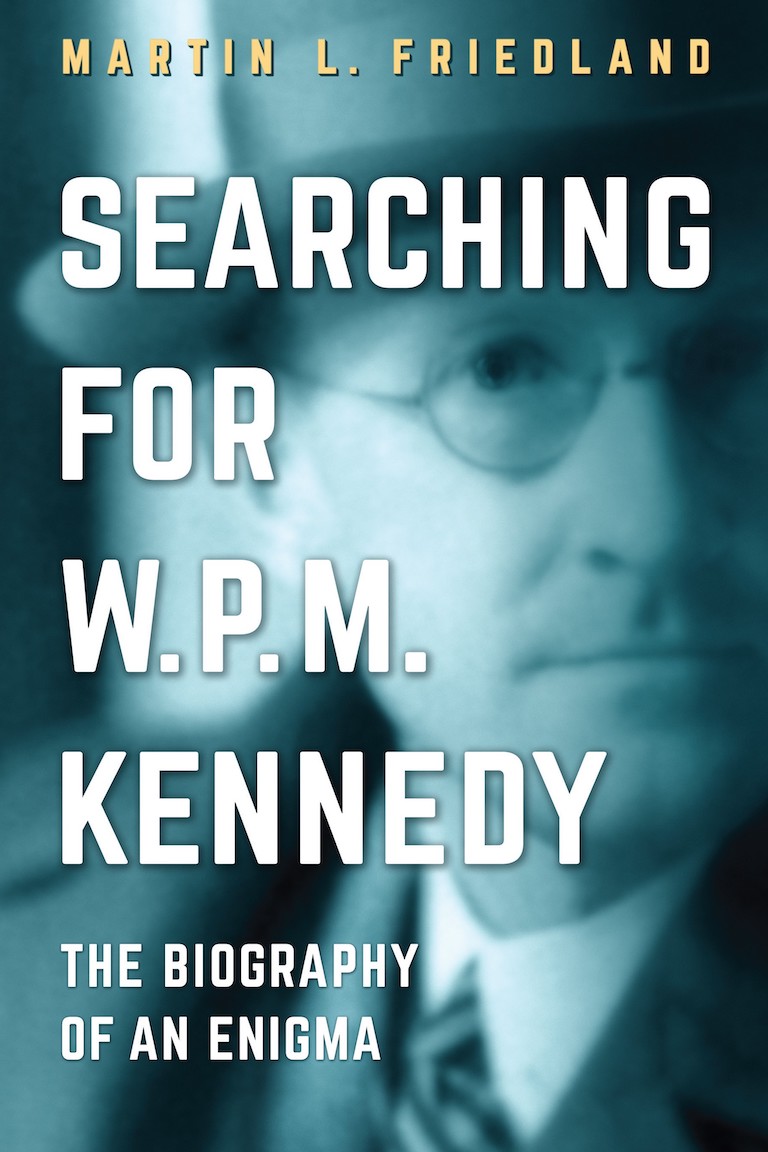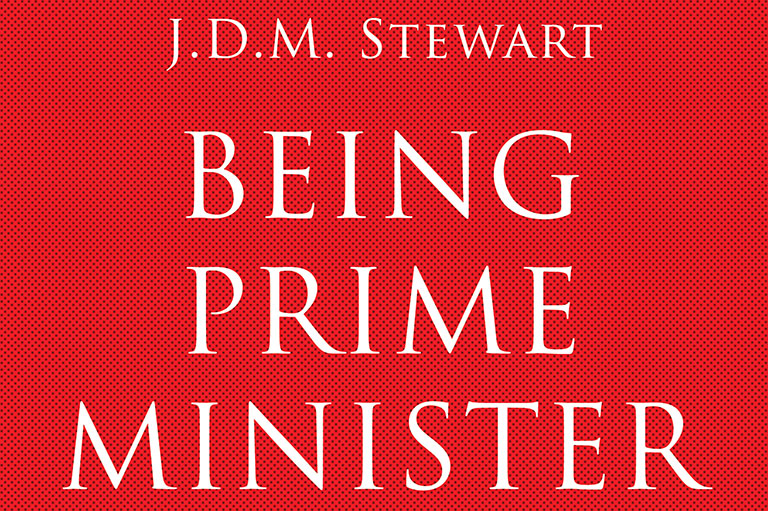Searching for W.P.M. Kennedy

Searching for W.P.M. Kennedy: The Biography of an Enigma
by Martin L. Friedland
University of Toronto Press,
504 pages, $49.95
In the preface to his masterful biography of W.P.M. Kennedy, the first dean of the Faculty of Law at the University of Toronto, Martin Friedland tells the story of his own purchase of a 150-acre (sixty-hectare) cottage on the banks of the Magnetawan River near the town of Kearney, Ontario. Friedland bought the property from Frere Kennedy, the son of “the Dean.” After settling in, he found two large boxes containing letters and documents that had been shipped to the cottage during Kennedy’s long tenure there.
That story contains intrigue and a bit of mystery, which, as we learn, amply reflects the nature of W.P.M. Kennedy’s life. Kennedy had made a point of destroying many boxes and files after he retired in his late sixties, thus making the challenge of piecing together the different parts of his life all the more difficult.
Born in 1879 in Northern Ireland as the son of a Presbyterian minister, Kennedy journeyed to Trinity College Dublin, where he studied English literature and history, receiving his B.A. and M.A. under the tutelage of John Pentland Mahaffy. In his later curriculum vitae, Kennedy never mentioned his birthplace, his Protestant roots, or his early childhood. He eventually received a D.Litt. degree from Trinity College Dublin, based on his scholarly work on Tudor ecclesiastical history, and spent some years associated with an Anglo-Catholic retreat at Mirfield Monastery in England before converting to Roman Catholicism.
All of this happened before Kennedy’s time in Canada, which began in 1913 at Nova Scotia’s St. Francis Xavier University, where he taught history. He left that institution under a cloud because of an affair with a student. But, by virtue of his friendship with the archbishop of Toronto, Neil McNeil, he came to St. Michael’s College and, eventually, other work at the University of Toronto.
A brilliant lecturer, conversationalist, and scholar, Kennedy shifted his interests to constitutional history and law, becoming dean of a law faculty whose teachers he recruited and whose curriculum he designed. Early in his tenure at U of T, the letters “LLB” were added to his biography following his name, and an M.A. was attributed to Oxford University. The dean of the Faculty of Law, Kennedy never formally studied law as a student, but his brilliance was neither contrived nor artificial.
Friedland deftly weaves an account of Kennedy’s complex life with great insight and scholarship. His book touches on Kennedy’s intellectual contributions, which were significant, his charisma and panache as a teacher, and his success in building a faculty. He dealt with the thrust and parry of university politics and made important contributions to public policy. The book also gives a compelling account of the battles between the Law Society of Upper Canada and the university, and it explains how Kennedy’s legacy was largely forgotten until quite recently.
There were people who thought Kennedy was more a self-promoter than an “enigma,” but Friedland paints a portrait that is sympathetic, richly documented, and very human. Kennedy’s life was difficult in many ways, and his last years were painful as he became more isolated. He was not straightforward, but his contributions were real, and his gifts were many.
Having known many of Kennedy’s students, I know how deeply they revered him and the lasting impact he had on them. We can be grateful that Martin Friedland has taken the time to give us this remarkably comprehensive account of a man and his time.
Themes associated with this article
Advertisement




